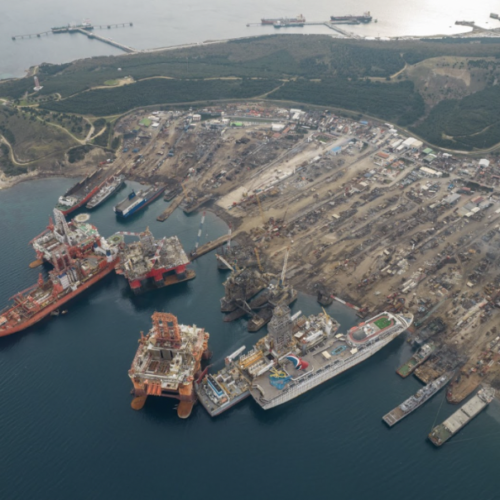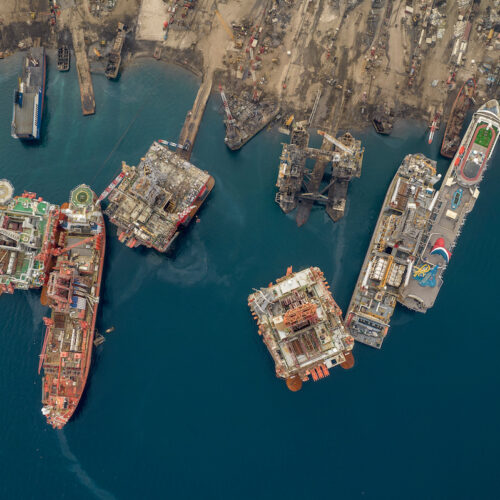Press Release – NGOs call on the Netherlands to push for the safe and environmentally sound recycling of FSO Safer
As the operations for the removal of the oil on-board the decaying Floating Storage and Offloading (FSO) vessel SAFER are taking place off the coast of Yemen, the UNDP is looking for a destination for the FSO’s recycling. NGOs have urged the UNDP to find a solution that effectively addresses the inherent risks associated with the dismantling process and the management of the hazardous materials that will remain on-board. Now, they are calling on the Dutch government, one of the biggest donors to the Stop Red Sea Oil Pollution operation, to follow suit and assist UNDP in identifying a suitable recycling facility.
The Netherlands has shown leadership in preventing the environmental disaster an oil spill from the FSO Safer would have caused, with also Dutch company Boskalis, via its subsidiary SMIT Salvage, tasked with the removal of the oil from the FSO. Referring to Dutch involvement in the Stop Red Sea Oil Pollution operation, Dutch Minister for Foreign Trade and Development Cooperation, Liesje Schreinemacher, announced that “The Netherlands will continue helping the UN to bring this to a good end.”

Shipping broker Clarkson, on behalf of the UNDP, has already received bids for the towing and scrapping of the vessel. The NGOs have urged UNDP to comply with international waste law and opt for a final destination that can guarantee practices beyond the weak standards set by the International Maritime Organisation’s Hong Kong Convention [1], and are aware that alternative and more sustainable solutions off the beach are at the UNDP’s disposal.
NOTES
[1] Several yards located on the beaches in India and Bangladesh and major cash buyers, which regularly sell end-of-life vessels for dirty and dangerous shipbreaking, have shown interest in scrapping the FSO SAFER. Facilities that practice the beaching method have a documented lack of capacity to ensure the environmentally sound management of hazardous wastes and are therefore likely to offer the highest price for the asset, leaving workers, local communities and the environment to pay the price of toxic exposure.
Related news

Press Release: Need for reform of ship recycling sector in Turkey has never been more apparent after massive fire and waste dumping scandal revealed
In recent months, Turkey’s ship recycling sector has experienced significant movements. From controversies surrounding the sale of shipbreaking yards to the arrival of a UK Navy vessel,… Read More

Platform News – NGO Shipbreaking Platform presents Annual Report 2016
The NGO Shipbreaking Platform presents its Annual Report 2016. Last year, at least 52 workers lost their lives on the shipbreaking beaches in South Asia. The… Read More

Ship recycling in Aliağa under the spotlight
NGOs call on Turkey and the EU to bring needed change and transition the sector towards dry docks.
... Read More
The Toxic Tide – 2024 Shipbreaking Records
2024 shipbreaking records: most shipping companies continue to opt for the highest price at the worst scrapping yards.
... Read More
Press Release – NGOs and trade unions denounce certification issued to PHP yard by classification society RINA
In October, the PHP Family (Peace Happiness and Prosperity) shipbreaking yard received a Statement of Compliance with the Hong Kong Convention [1] by the Italian classification society… Read More

Press Release – Toxic aircraft carrier dangerously drifting after weeks at sea
The toxic waste-laden aircraft carrier São Paulo is still drifting more than 12 miles off the coast of the State of Pernambuco.
... Read More

